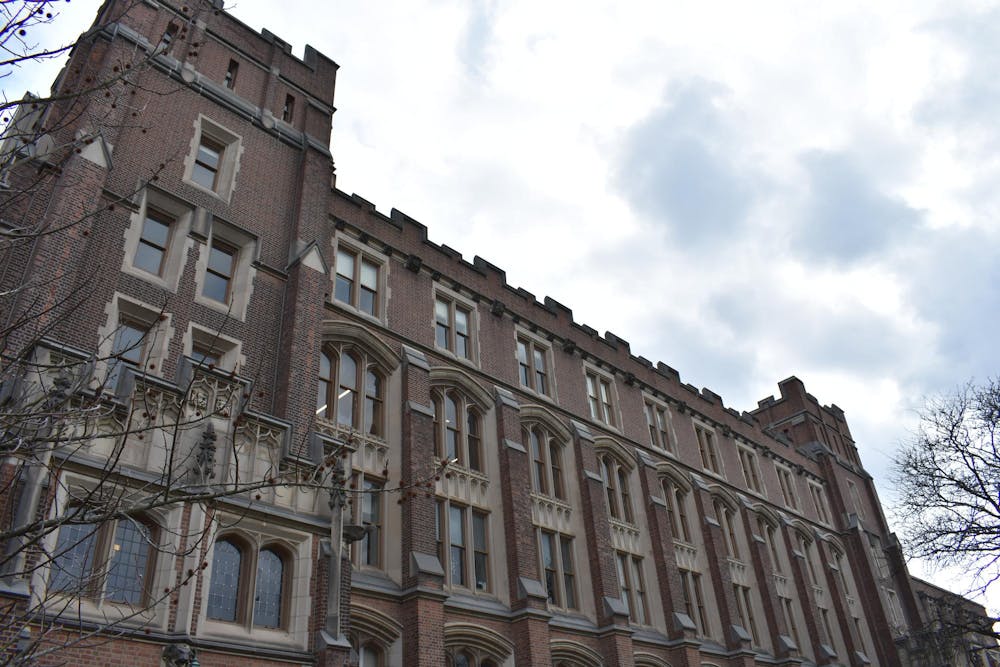This October was the second warmest and second driest recorded in U.S. history — in the wake of these conditions, New Jersey has been facing an increase in late fall wildfires.
Historically, wild fires in the state have peaked in April, with spring flare ups hitting close to home for Princeton’s campus in recent years. While many parts of the Northeast remained under a red flag warning until the beginning of November, the New Jersey Department of Environmental Protection currently still classifies wildfire risk within the state as “low.”
The Daily Princetonian spoke to student experts and climate scientists on campus to break down the weather patterns that may be fueling wildfires.
In an interview with the ‘Prince,’ professor of Geological and Geophysical Sciences Daniel Sigman explained that, as the temperature increases, the amount of water vapor held in the air “increases exponentially.”
“Whenever air wants to take up more water vapor, that tends to generate more evaporative and dry conditions on the surface. The wet periods are compressed into briefer stages, while dry time intervals dominate,” he said.
Sigman explained the concept of the Hadley cell, which is a global atmospheric flow that moves air between the tropics and the poles. Due to climate change, this flow has been partly pushed northward, which has made summer and fall weather conditions drier in the Northeast and therefore increased the risk of wildfires in forests, parks and mountainous areas.
Sigman said, “This is a metric of the Palmer Drought Severity Index (PDSI) … While predictions show no decline in total precipitation in Northeast Coastal America, we have to increasingly account for the runoff ability of the water.”
“With generally drier soils, the fraction of water being actually absorbed by the ground will dramatically decrease,” he added.
Michael Igbinoba ’27, who works in the Princeton Geosciences Vecchi Research Group, explained to the ‘Prince’ in an interview, “There is interestingly a circulation pattern in the world that actually dictates how warm in general the planet will be. It is called El Niño. While such events are really hard to forecast, a mix of El Niño with global warming will lead to unprecedentedly high temperatures stacking up.”
“Wildfires are now part of the game,” he added.
“Fires in the Northeast are not really part of natural processes to which organisms have adapted,” Sigman noted. “Wildfires in ecosystems such as those in New Jersey, can be particularly damaging for the environment.”

“We also have to take into account that a lot of the forest we are dealing with here is secondary forest that hasn’t really — in a sense — adapted to such perilous conditions,” he continued.
Geosciences and School of Public and International Affairs (SPIA) professor and Director for the Center for Policy Research on Energy and Environment Michael Oppenheimer explained to the ‘Prince’ that “Princeton is a small dot on a big map … and one thing climate models are least effective at projecting are changes in precipitation, especially targeted at a particular place on the globe.”
“Certainly, though, we have to worry that the tendencies we observe will push us in the direction of more fire … in general, without changes in the management practices, it is likely that the fire situation will only become worse,” he added.
Sigman emphasized the urgency of the situation. “I am teaching a class in climate change, but we still don’t know the immediate answers to these questions,” he said.
“The concentration of all our powers and human cooperation in organized action is the way to reduce these dramatic consequences we are facing.”
Achilleas Koukas is a News contributor for the ‘Prince.’
Please send corrections to corrections[at]dailyprincetonian.com.








